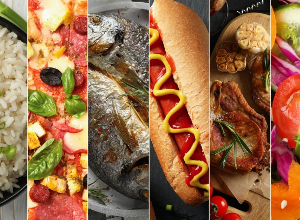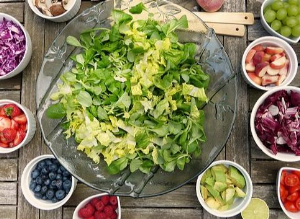The 80/20 rule for rebalancing your diet
Published May 7, 2023 • By Claudia Lima
According to the WHO, poor nutrition and lack of exercise are the main health risks worldwide. A healthy diet helps protect against all forms of malnutrition, as well as against certain diseases.
This is why some people decide to start rebalancing their diet. Some do it for for esthetic reasons, or to improve their self-confidence.
There are many different methods to choose from. Unfortunately, not all of them are always effective. The 80/20 rule has become quite popular lately, so we've decided to tell you all about it.
What is the 80/20 rule? How does it work?
Read our article to find out!

What is the 80/20 rule? Is it a type of a diet?
The 80/20 rule in nutrition is inspired by Pareto's Law, highlighted by the economist V. Pareto, who explains that it is a distribution principle where 80% of the results come from 20% of the causes. Since then, this theory has been democratized and its use diversified, from economics to nutrition and business.
As far as nutrition is concerned, the 80/20 principle makes it possible to have a well-balanced diet without depriving oneself too much. It consists of alternating between 80% of healthy food and 20% of treats.
This method should not be considered as a diet in itself, but as new nutritional reflexes to adopt. The aim is to avoid restrictions and frustrations. This is why we talk about rebalancing your diet with the 80/20 rule, as this will not make you lose weight drastically.
What should you eat 80% of the time? And what should you eat the rest of the time?
Eating according to the 80/20 rule means composing your meals as follows:
80% of your diet should be healthy
Make sure that these meals are balanced. That is, fruit and vegetables, pulses, dried fruit and whole grains, raw and minimally processed foods, fish, poultry, vegetable proteins and good fats. These meals should be composed of proteins, carbohydrates and fats in accordance with the dietary rules, and should cover the weekly nutritional needs of the body, without excess fat, sugar and salt.
For the 80% part, it is possible to vary the foods to eat healthily without getting bored.
20% of your diet is for treats
This type of food, also known as "cheatmeal", is meant to please. For this part of your diet, foods containing fat, alcohol and sugar are allowed. Even though you should still avoid overindulging: try to consume reasonable amounts of such meals, and to watch your satiety.
Such foods, however, are not recommended if you suffer from type 2 diabetes or kidney failure, because of the risk of over-consumption of sugars, for example.
How can the 80/20 rule be applied and what advantages does it offer?
To apply the 80/20 rule on a daily basis, a minimum of preparation is required. Moreover, you can follow the 80/20 rule for only a day, a meal or a week. You should therefore plan your meals or calorie intake in advance. One tip would be to note in your diary the outings and restaurants you plan to visit.
Several methods exist:
- Some people choose to count the calories in their meals, and depending on their periodic energy needs, define their 20% pleasure meals. For example, if one needs to consume 1800 calories per day, 1440 calories will be used for healthy food/meals and 360 calories for treats (a sweet dessert for example).
- Others will determine their 20% of treats in the number of meals per week, which means about 2 meals per week. It is the most common method.
- It is also possible to intuitively check the composition of each plate, and to determine the distribution of foods to be considered as healthy and those that constitute the remaining 20%.
The 80/20 rule thus makes it possible to:
- Adopt a healthy and balanced diet,
- Maintain the pleasure of eating,
- Stabilize weight by reducing compulsive eating and the rebound effect and weight regain.
When it comes to food, everything is a question of balance. It is recommended to be accompanied by a specialist in nutrition, in order to avoid developing eating disorders or demonizing certain foods.
To lose weight, this diet alone is not enough. To increase the effects of the 80/20 rule, it is advisable to practice some kind of physical activity, such as walking, running or yoga.
Share your thoughts and questions with the community in the comments below!
Take care!
Sources :
Alimentation saine, who.int/fr
Régime 80/20 : quelle est cette méthode qui permet de mincir tout en se faisant plaisir, femmeactuemme.fr
La règle des 80/20 ou comment mincir tout en se faisant plaisir, journaldesfemmes.fr
Règle des 80/20 pour perdre du poids : comment ça marche, amelioretasante.com
Comments
You will also like

Spoon theory: What is it and how can it help people living with chronic illness?
Apr 13, 2022 • 7 comments

 Facebook
Facebook Twitter
Twitter

